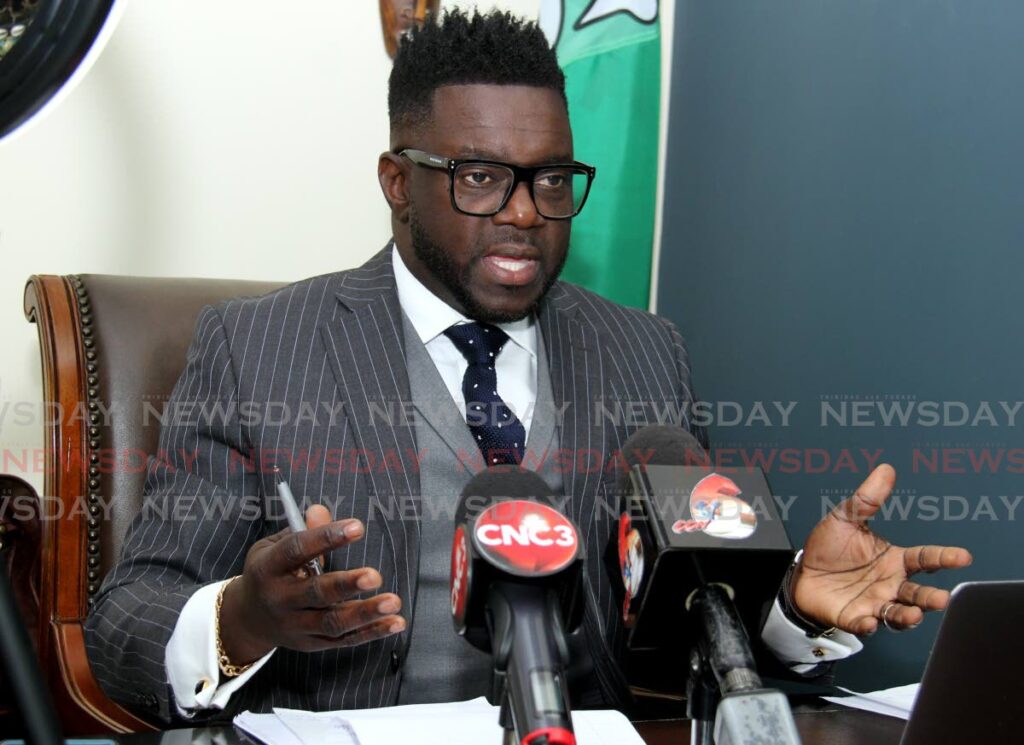Duke as the next PM and constitutional reform

STANLEY LEE POW
Can Watson Duke be the next Prime Minister? Don’t laugh, I am quite serious. Consider the following scenario.
Following the Tobago House of Assembly (THA) elections it is quite possible that the Progressive Democratic Patriots (PDP) could win the two seats in Tobago – with Duke taking Tobago East – in the next general election. If Trinidad is shared, say, PNM 20, UNC 19, no party having an overall majority, Duke therefore becomes the kingmaker. The PNM will go alone as usual the UNC would likely join with the PDA. Will Duke accept anything less than PM? If no parties decides to unite, will the President select one party “on moral grounds,” as Arthur NR Robinson did? Is this reason enough to seek constitutional reform?
Why I hate opposition politics
I wish, for starters, that the term “opposition” is replaced by “alternative government.” Unfortunately, in TT we seem to slavishly copy US politics where the Opposition tries every stratagem possible to make the Government look bad and would willingly support measures that could win tit votes although it is fully aware that such measures may not be in the country’s best interest.
For example, the Opposition appears willing to wreck the Revenue Authority when they know fully well that Customs and Excise and Inland Revenue are inefficient. The same applies to the property tax. The best and most dangerous example though is its opposition to a vaccine mandate.
Opposition Leader Kamla Persad-Bissessar said that “…the Opposition would not support forced mandatory vaccination.” This will probably win the UNC a lot of votes, especially from the followers of JTUM who vigorously oppose vaccine mandates. But I respectfully ask: Isn’t the wearing of seat belts a mandate? Isn’t the prohibition of drinking alcohol and smoking in public a mandate? Most importantly in the context of vaccinations, isn’t the necessity to have your child vaccinated before entry into primary school a mandate?
In most countries that, like TT, have tried everything to persuade the public to vaccinate and have failed, they have turned to vaccine mandates and face bitter opposition (eg, St Vincent). The opponents do not offer a viable alternative but what is sad is that many of them are vaccinated (on the down-low, especially if they want to travel) but are willing to mislead their unfortunate followers who may be vaccine hesitant.
I cannot understand why anyone would ignore the advice of the World Health Organization, the Caribbean Public Health Agency and our own Ministry of Health in favour of non-medical “experts” and social media. Do we have to see backhoes digging mass graves for the hundreds of bodies packed in refrigerator containers and patients in hospital corridors and tents before we do the simple logical thing and take the vaccine?
Constitutional reform
The government institutions are horribly dysfunctional. Does our judiciary really dispense justice? Do any of our service commissions (police, teaching et al) fulfil their mandates efficiently? Is our parliamentary system working for our people? I would humbly like to initiate a conversation on reforming an area that could have a profound effect on government.
For starters, why can’t we vote for an executive president, one of whose primary function would be to preside over Parliament? Eligible parties would nominate a candidate for president who would be elected at general elections. If no candidate gets a clear majority (51 per cent of votes), the top two candidates would then have a runoff. The 41 constituencies will vote for their representatives as per usual.
The president will determine which ministries are needed to run the country’s affairs but the ministers will be elected by the 41 parliamentarians (by secret ballot). Nominees would come from the parties that have seats in the Parliament, regardless of size. In this way a nominee from a small party who has superior
abilities can become a minister. Each minister would have autonomy in the running of their ministry but would be subject to recall after two years if a majority of parliamentarians should deem him/her unsuitable.
Allocation of funds to ministries would be set by the Minister of Finance with a certain proportion of the budget set aside for contingencies/emergencies.
I am no constitutional expert but surely we would agree that something must be done urgently. While my suggestions may not have merit, perhaps they may stimulate others who are better qualified than I am to suggest alternatives.

Comments
"Duke as the next PM and constitutional reform"